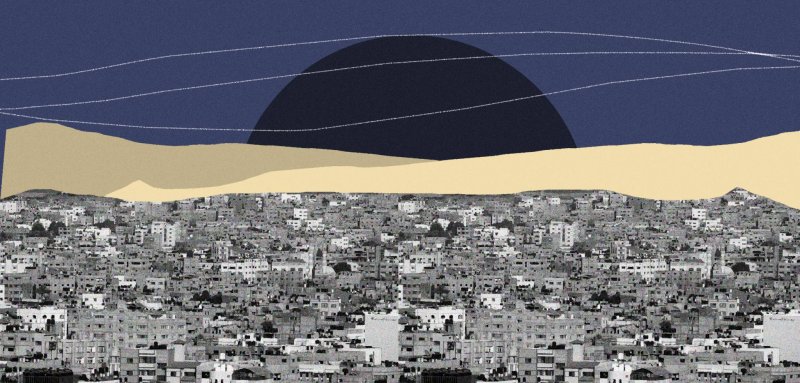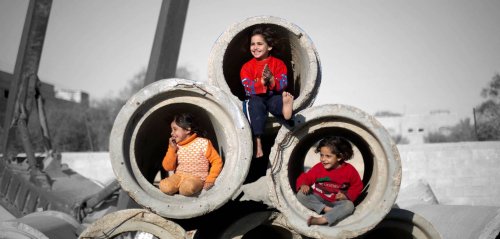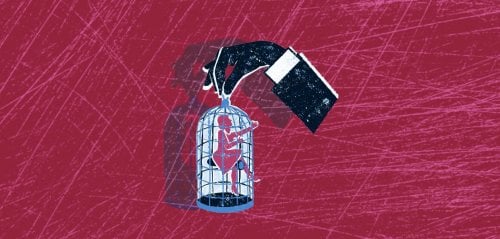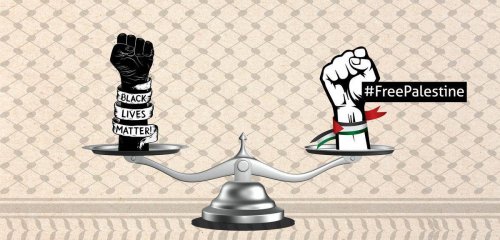In the Gaza strip, it isn’t uncommon for young cultural and political activists to be questioned in an invasive manner by Hamas officers, for Hamas had investigated the majority of those that were active in the public sphere, with some facing torture and abuse in their prisons; their personal freedom, work, and activity restricted.
I wasn’t very different from those with whom I had shared the same upbringing under both the blockade and Hamas’ rule, and had tried to engage with the political and cultural public issues in Gaza. Ever since I stepped out of my isolation and into the public scene, Hamas has been trying to restrict me and put limits to my talent in writing, when on the 1st of march 2018, they had placed strict terms on the publication of my first novel “A Drowned Seeking No Survival”, cancelled my book signing in the Rashad al-Shawwa Cultural Center located in the center of Gaza city, limiting the number of copies that were supposed to be printed. They also prevented me from holding a book signing in any governmental or cultural place affiliated with the government or the municipality, therefore limiting the ceremony to a private place, at my own expense, forcing me to celebrate myself despite myself with the presence of their security among the audience.
Ever since I stepped out of my isolation and into the public scene, Hamas has been trying to restrict me and put limits to my talent in writing, limiting the publication of my first novel in March 2018.
In addition to that, the publishing house that had published my novel was investigated under the pretext that the novel contained political views that were out of the ordinary and carried political ideologies that didn’t match the reality of Hamas’s ruling in Gaza. Regardless, the book signing ceremony still flourished despite the might of Hamas’s security forces, the novel was widely read.
I left Gaza in 2019 to Beirut to complete my studies, and then later returned to Gaza to visit my family. Throughout this period, I hadn’t halted my cultural and political activities, contrarily, I had been active and lively interacting and engaging with public issues from afar through social media and by publishing articles and opinions on social platforms and through cultural activities. I had by then gotten married to a Palestinian girl from the occupied territories of 1948, we got married in Istanbul.
This union was a surprise to everyone, many were joyful and it became a national jubilation due to the fact that this kind of relationship wasn’t common especially among our generation, a generation that isn’t familiar with any geographical area outside its own. Our relationship had broken boarders and standards placed by the occupation on the relationships that Palestinians can have among each other, my wife and I surpassed all the obstacles and challenges that were imposed upon us by the difference in the color of our IDs, the difference of our geographical areas, and the cruelty of alienation and being away from our home land since we can’t live together in Palestine, for no Palestinian from Gaza is allowed to live on the occupied lands, and no Palestinian from the occupied lands is allowed to live in Gaza. Therefore for this relationship to be, we were destined to settle outside of Palestine.
No Palestinian from Gaza is allowed to live on the 1948 occupied lands, and no Palestinian from the occupied lands is allowed to live in Gaza. Therefore for this marriage to be, we were destined to settle outside of Palestine.
In October 2021, I went back to Gaza for an emergency family visit that was unexpected and unpredicted. After an exhausting trip through Egypt to Gaza, I reached the Rafah border crossing at 1 a.m. and was surprised to find that my name was on a Hamas’s government list.
The officers at the crossing collected my passport, bags, and my personal belongings, and asked me to head for the internal security room in order for them to investigate. I didn’t understand why I was being led to investigation at this late hour and in this manner without any legal warrant that called for the investigation or that charged me with any accusation. I was forced into the interrogation room without informing anyone and without contacting my family. An officer approached me and told me that he would be asking me a series of “routine” questions and then he would let me go, but I had to answer honestly. The officer began his investigation with skeptical questions, as usual, by comparing my political thoughts and religious beliefs before I traveled in 2019 up until my return to Gaza, so he asked: “did your political thoughts and religious beliefs change after your travels, especially after your studying at a Christian university?” my answer was that it wasn’t natural for one to travel and not have his views on life change, for this was very natural, people change every day, and those who don’t, suffer from stagnation, and stagnation wasn’t normal.
The officer stared lengthily at a necklace I was wearing; this necklace was a dear gift from someone close to me that lit my path as I was overcoming the impact that the siege had on me, in confusion as to how the son of Gaza returns to it, crudely carrying what contradicts what was imposed upon him for 16 years of besiegement. But the questions that the officer had decided to ask went around the violation of law and weren’t targeted directly at it; he went on asking about my political ideas, the right, the left, Hamas, the resistance, the Palestinian society and its customs, traditions, and differences, all the while looking from the corner of his eye, at my neck.
But his questions didn’t stop at my personal freedom and my life as an individual, they were extended to my marriage, the nature of my relationship with my wife, how me met, where we met, how our story started, where we got married, her blue ID, her work, what language she spoke, the Hebrew that she spoke, her relation with God, does she pray? Does she fast? Does she perform Zakat? Does she perform the fundamental duties of Islam? What about her hijab? Why isn’t she currently wearing it? And did I play a role in her not wearing it after our meeting?
I was listening to his questions and wondering about the place that I was sitting in at that moment, the absence of law and personal freedom in it, the lack of respect for the individual’s privacy, the insult to human dignity, and does my wife’s relation with god affect how this officer evaluates her, our private relationship, and our marriage, and how we’re evaluated by those with greater power than him and might rule Gaza?
I couldn’t stop the officer from asking me all these questions about my wife, I who thought that coming back to my homeland for a few days would save me forever. He went on narrating a lesson in religion after that, about what’s halal and what’s haram, and the importance of my guardianship over my wife and how I should convince her to wear the hijab. At that moment I popped up a random question: “am I here to be investigated about my wife’s prayers and hijab? Detained at the Rahaf crossing at this very late hour after a road that took me two days in the desert, just to be asked about this?”
Stopped by Hamas at the Rafah crossing at 1 am, an investigations officer gave me a lesson in religion, about what’s halal and what’s haram, and the importance of my guardianship over my wife and how I should convince her to wear the hijab.
After over an hour of being interrogated and detained at the Rafah border crossing, I was allowed to take my leave, after the officer had taken away my necklace, accompanying him was a laugh expressing his victory over my ideas that were different.
I left feeling provoked and psychologically pressured, these are the feeling that Hamas is trying to create by pressuring the youth of Gaza in investigations without charges, and without any legal warrant, through arbitrary detention, Hamas’s officers try to intimidate the youth by using religion, customs, and traditions to terrorize them psychologically and socially, in order to restrict their freedom, frighten them, and tamper with their lives by mixing up public issues with private matters. For what does my wife’s prayers have to do with my political activities and political views? And why do the officers presume that they have anything to do with people’s personal lives? Why are security investigations immersed in people’s personal affairs?
I entered Gaza and stayed there 21 days, moving between my bed and "Gallery 28", all the while thinking of a way to survive this place, this little hell, thinking of my wife on the other side of the border, waiting for me to get out of here in order for us to move to a place in which we can live with dignity.
For 21 days I watched the dead faces of people, tired from all the pain, exhausted from the ongoing wars and lack of achievement, I saw the towers that had left nothing behind but debris, and members of many families that have diminished after my absence for a few years, houses that were in the camp that have turned to ashes, and dreams diminishing as the came out of people’s mouths every time I asked about them.
I left Gaza after 21 days, determined never to go back to this place that doesn’t respect people’s beliefs if they are different from the beliefs of the rulers, after paying a small fortune to the so-called “Coordination of the Rafah crossing”, which allowed me to leave the place in which I grew up after my most difficult visit. I left bearing anger within me that is still hard to let out and talk about till this very day, and questions that are still stuck in my head about the relation between my wife’s prayers, and my political ideas, and as to why our personal lives must appear so naked in front of the security officers?
* The views and opinions expressed in this article are those of the author’s and do not necessarily reflect the official policy or position of Raseef22
Raseef22 is a not for profit entity. Our focus is on quality journalism. Every contribution to the NasRaseef membership goes directly towards journalism production. We stand independent, not accepting corporate sponsorships, sponsored content or political funding.
Support our mission to keep Raseef22 available to all readers by clicking here!
Interested in writing with us? Check our pitch process here!








